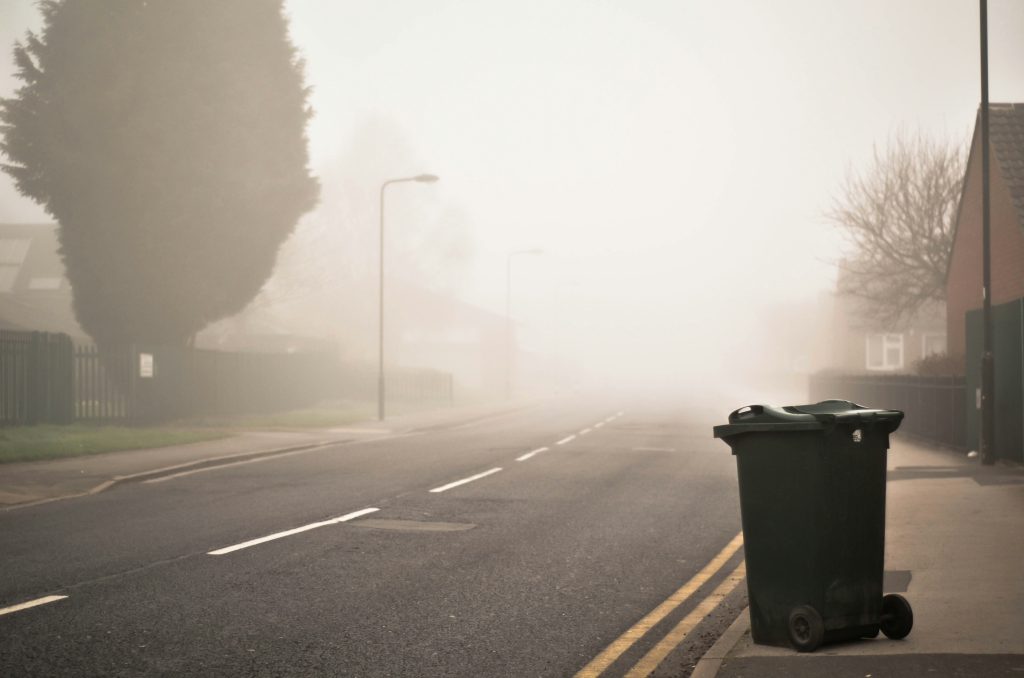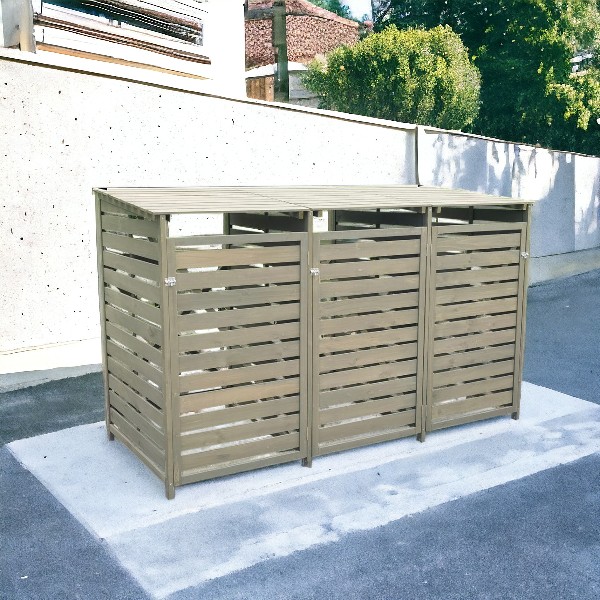Wheelie Bin Hygiene
Why should I consider a wheelie bin cover?
We pretty much all have bins – red, green, blue… They are necessary, but certainly not adding any charm to our gardens and driveways! Plastic covers may seem affordable, but due to quickly decaying and being susceptible to the wind damage (as well as damage from being lifted by the garbage truck), the cost of replacing them quickly adds up.
That is why we only offer wheelie bin storage made from pressure-treated wood. Our wheelie bin sheds are available in either solid wood Deluxe style or slatted wood Classic style. Both styles are available in one, two or three bays. Whether you want to hide a single set of bins at your house, or you run a business utilising multiple bins and are looking for a clean, matching solution – we have you (and your bins) covered!
The bins covers come with individual bays for convenience, and the lid chains prevent the lids opening rapidly all the way back (i.e. in strong winds), thus preventing any unwanted noise. They are also equipped with front locks keeping your bins safe from fly tipping or potentially getting knocked over by animals seeking food.
All of our wheelie bin storage solutions come equipped with the following features:
- Pressure-treated wood
- Separately opening bays
- Bolts on the front to secure the front door
- Chains on the lids to ensure that the tops do not slam backwards when open
- Each bay cover has a latch to ensure that the cover stays in place, even in windy conditions

Keeping the bins clean
While wheelie bins are a convenient way to dispose of unwanted materials, they can also pose a health risk if not maintained properly. While our wheelie bin storage covers will keep dust and rain off your bins when they’re stored away, they bins can still get dirty from daily use or simply from waiting at the side of the road for a collection.
It is important to understand the potential health risks associated with dirty wheelie bins. Bacteria, viruses and other harmful microorganisms can thrive in the warm, moist environment of a bin that contains food scraps and other organic materials. These microorganisms can cause a range of diseases, including gastroenteritis, salmonella and E.coli infection. In addition to the health risks, dirty bins can also attract pests such as rats, mice and flies, which can further spread disease and cause damage to properties.
To prevent these health risks, it is crucial to maintain good wheelie bin hygiene. This includes cleaning the bin regularly and disposing of waste correctly. Bins should be cleaned at least once a month, or more frequently if they are particularly dirty or have been used to store food waste. Before cleaning, it is important to wear gloves, as the waste in the bin can be a source of harmful bacteria. The bin should be emptied completely, and any remaining waste should be removed using a brush or scraper. The bin should then be washed with hot, soapy water and rinsed thoroughly with a hose. To further disinfect the bin, a solution of bleach and water can be used, but care must be taken to avoid splashing the solution on the skin or clothes.





